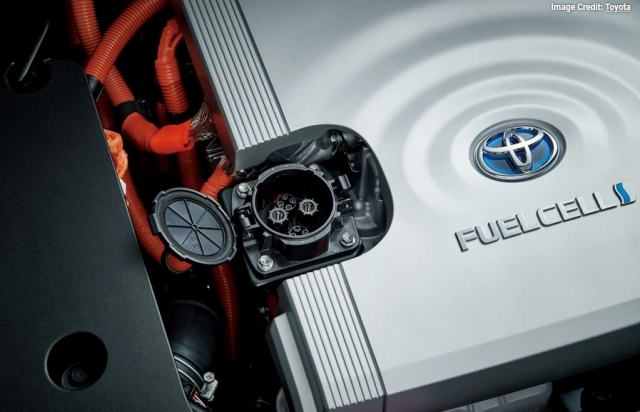
IPFS News Link • Energy
What Is a Hydrogen Car and How Does an FCEV Work?
• Make Use of TechnologyIt's not a secret that the world is gearing toward zero-emission vehicles in the near future. Even though electric vehicles have gained popularity in the past decade as an alternative to gasoline vehicles, hydrogen cars have struggled to catch up. However, hydrogen vehicles remain a plausible option, just like electric vehicles, to replace gasoline vehicles.
Curious about the science behind hydrogen cars? Keep reading.
How Does a Hydrogen Car Work?
Image Credit: Toyota
When it comes to hydrogen cars, you could either have two different sources of power; a hydrogen internal combustion engine or hydrogen fuel cells. The hydrogen internal combustion engine is designed similar to a gasoline engine, except that it burns hydrogen instead of gasoline.
On the other hand, a hydrogen fuel cell is used to convert chemical energy into electricity to propel your motor. For this to happen, hydrogen gas is released from its tank to the fuel cell where it's mixed with oxygen to create a chemical reaction that causes electrons to generate electricity.
Technically, a hydrogen car could be an electric vehicle but instead of running on batteries, they are designed with fuel cell power plants that generate their own electricity; that's why they're called fuel cell electric vehicles or FCEV. Similarly, you have the option to choose a hydrogen internal combustion vehicle; otherwise known as a HICEV. Learn more about how electric vehicles work if you're not familiar.




































